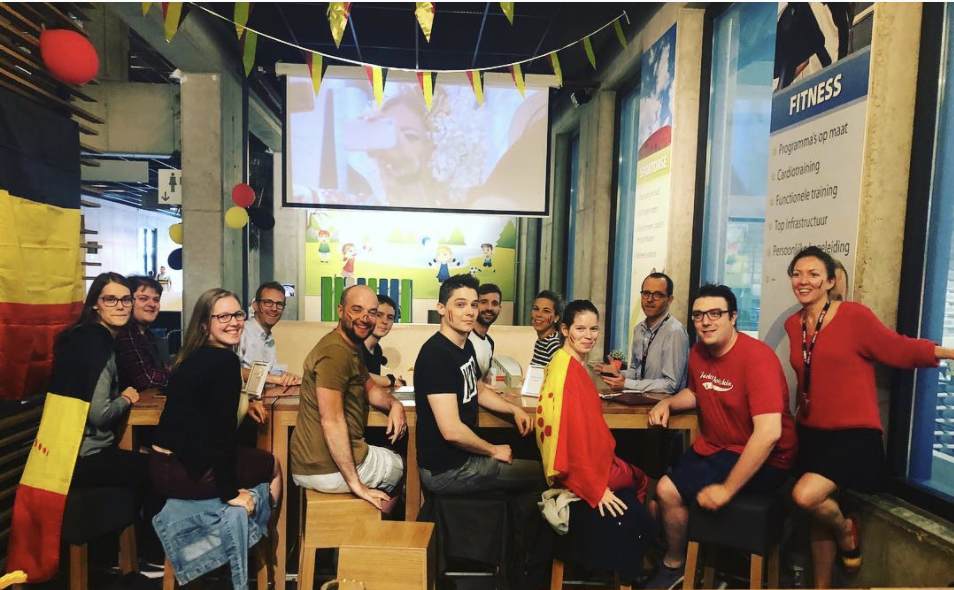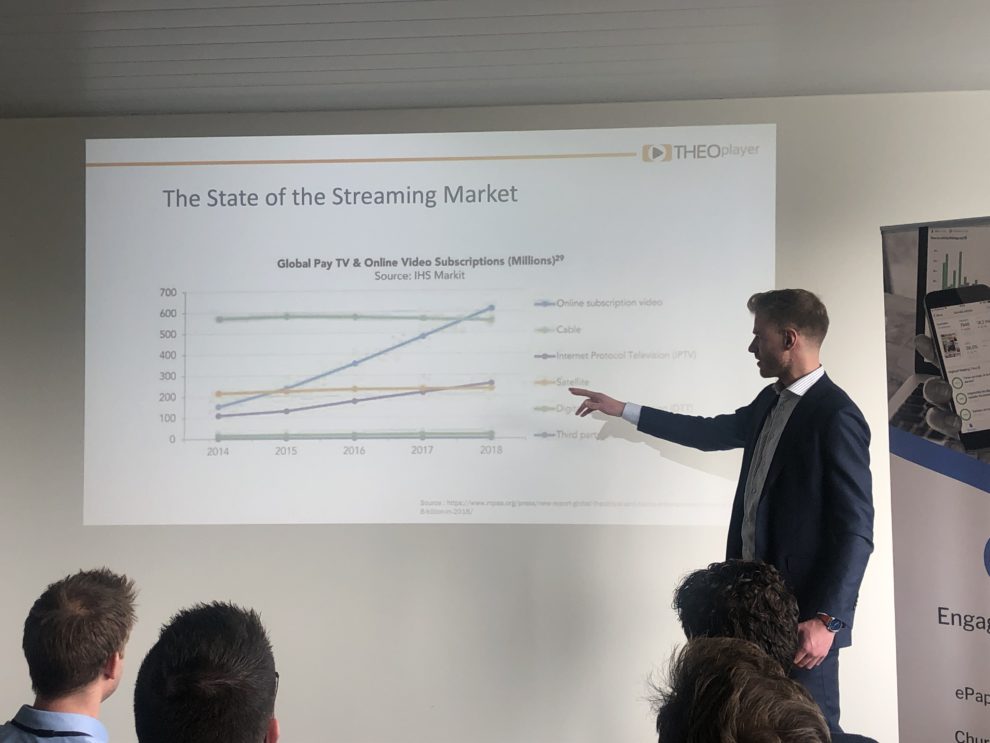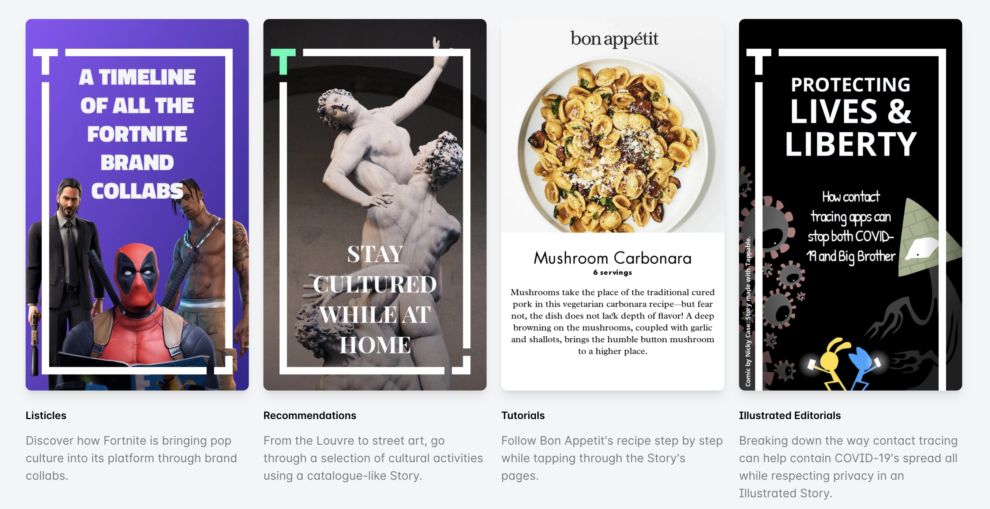All eyes on Belgium: small country, big media innovations
This week we celebrated Belgium’s national day. As a Belgian company, we are proud of our long history of innovation in the news industry. In 1605, the very first newspaper was printed in Antwerp, which is not too far from our office in Leuven.
This spirit of news innovation has carried over into the digital age as well, with the very first digital-only edition being Belgian born as well: dS Avond, which we are very happy to have collaborated on with Mediahuis.
Twipe itself is a very international company, with 7 nationalities in our team of 25, and customers in more than 10 different countries. Yet we are still a decidedly Belgian company. We make sure to cheer on the Red Devils whenever they play (with some of us even deciding at the last minute to fly to Russia to watch them in the World Cup), enjoy our frites/frietjes, and there’s always our hometown beer Stella Artois at our Friday afterwork drinks.

Leuven – Belgium’s Silicon Valley for media tech research
We are lucky to be based in Leuven, which is home to the world-renowned university, KU Leuven. Although it was founded in 1425, this university is on the cutting edge of technology, being consistently named the most innovative university in Europe. Due to this close proximity, we often collaborate with the university on large scale research projects.
One such project is the Digital Reader Engagement (DRE) project, in collaboration with Mediahuis and KU Leuven. We set out to answer the question: can we measure and predict reader engagement? As part of our research, we measured exactly what was happening in readers’ bodies as they read digital newspapers.
From this we were then able to develop our digital edition analytics tool, EngageReaders. Today this technology still remains the only ePaper analytics tool on the market than can track reader behaviour in pinch to zoom mode.
Investing in media innovation
It is no accident that Belgium is home to so many innovative media tech companies. Thanks to both IMEC’s iStart program and VRT’s Sandbox project, startups such as NowMax have been allowed to flourish.
Especially timely for the hyper-remote world of 2020 thanks to coronavirus, NowMax is the Belgian app for high-quality remote interviews. NowMax helps to ensure the real-time experience necessary for a smooth interview by allowing journalists to conduct their interview in low resolution, and then sends a full HD version of the interview afterward that can be used for broadcast or other sharing purposes. It also allows for the journalist to remotely control the sound and image settings of the interviewee so they do not have to interrupt the interview to do so. Belgian publishing group Roularta has partnered with NowMax on a Google DNI project as well.
Financial newspaper De Tijd experimenting with Tappable Stories
We have long been believers in the Stories format, the mobile-first format popularised by Instagram and Snapchat. Stories are already seen daily by hundreds of millions of people on social media, but few publishers have incorporated this format into their digital product strategies. That’s where Tappable comes in. Founded by a father and his sons, Tappable enables publishers to easily create Stories and share them anywhere on the web. Gone are the days of disappearing Stories; with Tappable, publishers can keep their Stories online for as long as they wish. This is great for engagement, with Tappable seeing open rates of 80% and completion rates around 60%.
Recently launched, Tappable has already seen some newspapers experiment with their tool, including Belgian financial newspaper De Tijd which used Tappable to create Stories on the topic of solidarity during coronavirus times.
Global publishers sourcing tech from Leuven
Our neighbours here in Leuven, THEO is the leading provider of universal video playback technologies for online media companies. They have gone truly international, with offices in Spain, Singapore, and the US. Their flagship product THEOplayer is a universal video player that enables publishers to bring a consistent video playback experience across any device or platform. With customers including CNN, BT Sport, and NBC, it is great to see international publishers sourcing their technology just down the street from us in Leuven.
Last year we were happy to welcome THEO in our offices as part of a Danish media innovation tour. Willem De Saegher, Sales & Strategic Account Director – North America, shared key insights on the video industry. One of the key stats that stood out was that globally 16% of video viewing attempts are aborted before the video even begins, as consumers are becoming increasingly intolerant of poor product experiences.

Sharing subscriptions within your bubble
One of the hot topics we identified earlier this year is how publishers should react to the growing trend of subscribers sharing their passwords. While research estimates Netflix alone loses more than $135 million each month due to password sharing, a study of publishers by Digiday found that 76% do not take any special steps to stop subscribers from sharing their login info, perhaps because it is believed to be too difficult. With research from Scaled Access showing that 1 in 5 subscribers will share their login credentials with others, it is an important topic for publishers to tackle.
Scaled Access, another Leuven-based startup, takes the headache out of access management, enabling publishers to give subscribers the ability to invite friends and family to view paywalled content. This way sharing content is now an opportunity for subscribers to drive organic growth, and in turn helps publishers better drive new subscriber conversions.

With each user now having their own account, it is also possible to better personalise content — just as Netflix does with their Family Accounts. With Scaled Access, user data becomes tied to the actual user, not to the subscription. Interestingly, they also personalise recommendations of the new users based on the reading behaviour of the person who invited them.
JAMES, Your Digital Butler – New habit creation tech
Of course we are also proud of our own media innovation created right here in Leuven: JAMES, Your Digital Butler. Developed in collaboration with The Times of London, JAMES is one of the first technologies created specifically for forming news reader habits. Using machine learning and AI, JAMES personalises the distribution of news content, in terms of time, content, format and frequency. During the one year project with The Times, we were able to observe a 49% reduction in churn within the group of readers who were exposed to the JAMES experiments.
Since this project wrapped, we have worked to bring the habit-forming power of JAMES to other publishers, with applications for our next launch partners group opening in the fall. To be considered for this, make sure to get in touch in advance – request an informational call here.
Other Blog Posts

Stay on top of the game
Join our community of industry leaders. Get insights, best practices, case studies, and access to our events.
"(Required)" indicates required fields


